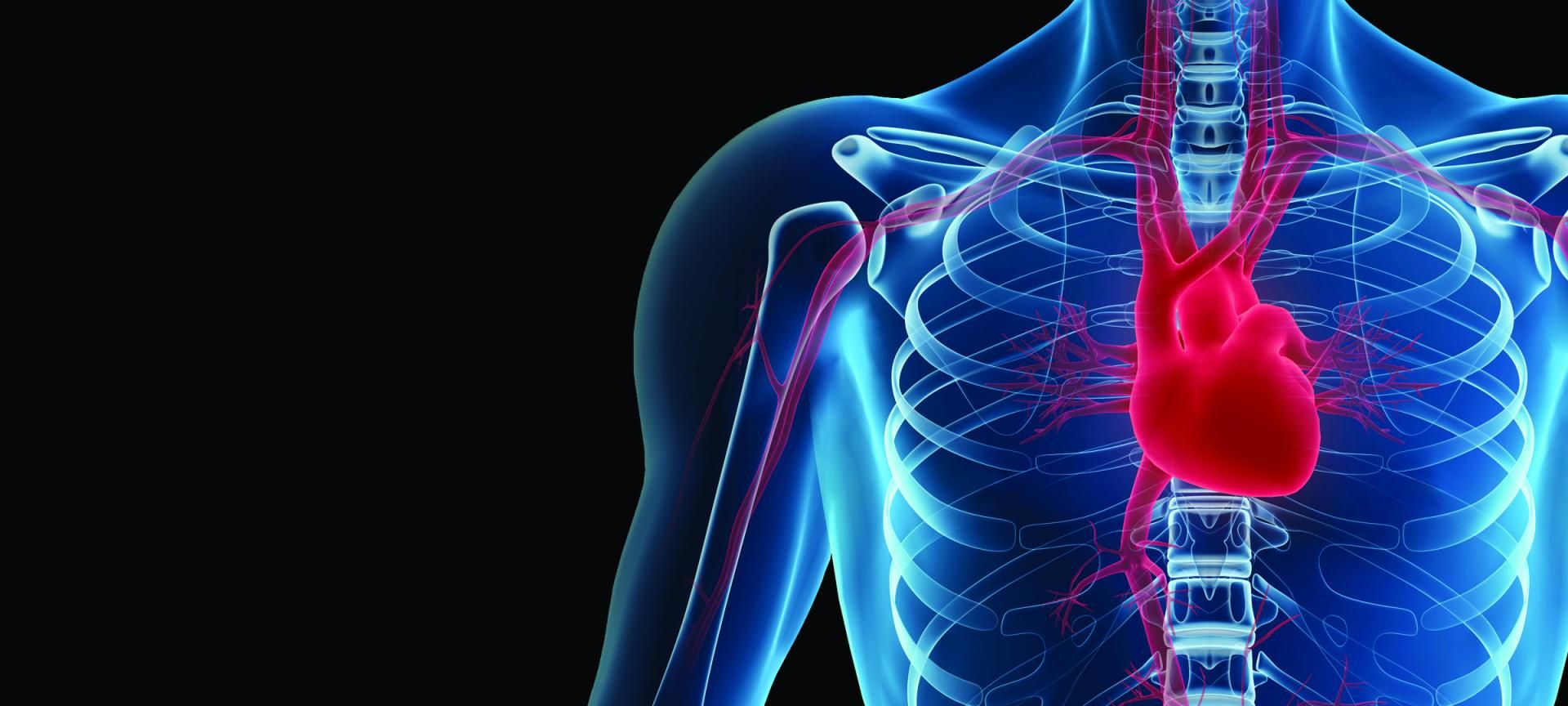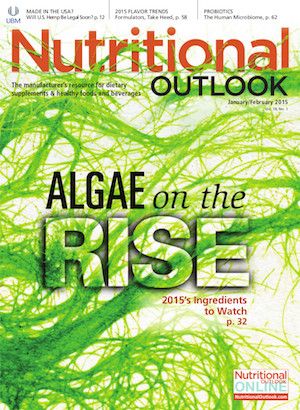Vitamin K2 for Bone, Heart Health: Just the Tip of the Research Iceberg?
New vitamin K2 research on bone and heart health, and the significant differences between MK-4 and MK-7

I have spent the past 20 years researching supplements to discern which ones I can recommend as alternatives or additions to other therapies, including pharmaceutical drugs. I always prefer to use natural products because of their general safety and minimal, if any, side effects. Of course, “doing no harm” or “having no side effects” does not necessarily make a nutraceutical efficacious.
I have dedicated considerable time to finding products proven to work as evidenced by rigorous scientific research. For decades, we have known about the role of vitamin K1 on coagulation. (Every practitioner knows about avoiding greens, a rich source of vitamin K1, when a patient is on warfarin.) Vitamin K2, however, is equally important and is an indispensable component of optimal bone and cardiac health. The science on vitamin K2 is robust and rapidly accumulating, and it is time for vitamin K2 to take its place on the list of essential supplements. Here is just a small fraction of what we already know and what exciting new research is soon to be published.
Forms and Benefits
Vitamin K2 is part of the vitamin K family, a group of fat-soluble vitamins. This family is actually split into two groups: vitamin K1 and vitamin K2. The difference lies on a molecular level. Vitamin K1 has one molecule (phylloquinone), while the K2 group comprises multiple molecules (menaquinone).
Members of the vitamin K family have the same structure-they share a “quinone” ring. Members of the vitamin K2 group, however, have multiple carbon-hydrogen atoms in their side-chain, called isoprenoid residues. The length of the side-chain dictates vitamin K2’s ability to reach different tissues within the body-the longer the side-chain, the more effective the form of vitamin K2. It will be absorbed better, stay in the blood longer, and will be more active in bone, arteries, and soft tissues.
Vitamin K2 has traditionally been available in supplements and functional foods as synthetic MK-4 and natural MK-7. In 2012, Sato et al. examined MK-4 versus MK-7, seeking to decipher which is more bioavailable.1 In this study, single-dose administrations of MK-4 (420 µg; 945 nmol) or MK-7 (420 µg; 647 nmol) were administered to healthy Japanese women with a standardized breakfast. MK-7 was well-absorbed and reached maximum serum level at six hours after intake and was detected up to 48 hours after intake. MK-4 was not detectable in the serum of all subjects at any time point. Consecutive administration of MK-4 (60 µg; 135 nmol) or MK-7 (60 µg; 92 nmol) for seven days demonstrated that MK-4 supplementation did not increase serum MK-4 levels; however, consecutive administration of MK-7 increased serum MK-7 levels significantly in all subjects.
The researchers concluded that MK-4 does not contribute to vitamin K status as measured by serum vitamin K levels. MK-7, however, significantly increases serum MK-7 levels and, therefore, may be of particular importance for extra-hepatic tissues, or tissues beyond the liver.
Bone Health
Vitamin K2’s proven ability to activate osteocalcin makes it an invaluable nutrient in achieving optimal bone health. Osteocalcin (OC) is a protein produced by osteoblasts (bone-building cells) that, when activated, bind calcium to the bone mineral matrix. In a placebo-controlled, randomized clinical trial, Knapen et al. sought to demonstrate this benefit in apparently healthy postmenopausal women, with vitamin K2 as MK-7*. The team monitored the effect of a 180-µg MK-7 supplement on the bone quantity of 240 healthy postmenopausal women for three years.2
The supplementation group significantly increased in circulating active OC (cOC), a well-established biomarker for bone and vitamin K status. In the MK-7 group, the inactive protein, undercarboxylated OC (ucOC), decreased by 51% +/- 21% as compared to the placebo group (+4% +/- 49%), indicating a positive MK-7 bone effect. After three years of supplementation, improvements in both bone mineral content and bone mineral density were statistically significant in the MK-7 group; moreover, bone strength was statistically improved.
Helping Hearts
A burgeoning area of research documents vitamin K2’s protective effect on cardiovascular health. This benefit is linked to the activation of the matrix Gla protein (MGP), a K-dependent protein that is one of the most powerful inhibitors of vascular calcification known today. By activating MGP, vitamin K2 helps the body shuttle calcium away from arteries so that it does not deposit in the artery walls.
A study3 by Theuwissen et al., published in the British Journal of Nutrition in 2012, evaluated the dose-response effects of extra vitamin K2 (MK-7*) supplementation on the carboxylation (activation) of osteocalcin (OC) and MGP, and the effects on thrombin generation as an indicator of safety.
Forty-two healthy Dutch men and women aged 18–45 years were randomized into seven groups to receive either placebo capsules or vitamin K2 as MK-7* capsules at a daily dose of 10, 20, 45, 90, 180 or 360 µg. ucOC, cOC, and desphospho-uncarboxylated MGP (dp-uc-MGP) were measured. To increase the statistical power, the researchers collapsed the treatment groups into three dosage groups: 1) placebo, 2) low-dose supplementation (doses below the recommended dietary allowance, or RDA, per the European Union’s Commission Directive 2008/100/EC nutrition food-labeling rules), or 3) high-dose supplementation (doses around RDA, Commission Directive 2008/100/EC).
The results showed that extra MK-7 intake at nutritional doses around the RDA improved activation of the extra-hepatic vitamin K–dependent proteins; moreover, no adverse effects on thrombin generation were observed. Given the fact that, in the West, typical total vitamin K intake amounts to 100–150 µg/day-and that in this study, the MK-7 intervention supplemented a regular diet-this study demonstrates the high potency of this vitamin even at remarkably low intake levels. In conclusion, vitamin K2 as MK-7 is safe with respect to the hemostatic system and results in measurable changes in circulating inactive OC and inactive MGP that should be beneficial for bone and cardiovascular health.
Another study of note was conducted by Caluwe et al. and published in Nephrology Dialysis Transplantation.4 Hemodialysis patients suffer from accelerated vascular calcification, and as previously stated, the vitamin K–dependent MGP is one of the most powerful inhibitors of vascular calcification. Hemodialysis patients have high levels of inactive MGP (dp-uc-MGP), and researchers hypothesized that these patients may benefit from pharmacological doses of vitamin K2 to improve the calcification-inhibitory activity of MGP.
To determine the optimal dose of vitamin K2 as MK-7 for MGP activation, 200 chronic hemodialysis patients randomly received 360, 720, or 1080 µg of MK-7* three times weekly for eight weeks. Dp-uc-MGP was measured at baseline and after eight weeks.
At baseline, dp-uc-MGP correlated inversely with vitamin K2 intake (P = 0.023). MK-7 supplementation dose-dependently reduced dp-uc-MGP. The levels decreased by 17%, 33%, and 46% in the respective groups. The researchers concluded that pharmacological doses of vitamin K2 supplementation might be a novel approach to prevent vascular calcifications in chronic hemodialysis patients.
Also read: “Breakthrough” Vitamin K2 MK-7 Study Confirms Heart Benefits
Benefits for All?
Vitamin K’s current recommended dietary allowance is based on the liver’s requirement for blood clotting, but substantial concentrations of inactive, extra-hepatic Gla-proteins are found in the circulation of non-supplemented individuals. This suggests that vitamin K intake above the RDA is required for an optimal, extra-hepatic vitamin K status.
To that end, Theuwissen et al. measured circulating ucOC and dp-uc-MGP in 896 samples of healthy volunteers and defined target groups for vitamin K supplementation based on increased levels indicative of tissue-specific vitamin K deficiency.5 They studied the response to supplements by measuring the circulating dp-uc-MGP level in samples from two short-term trials of vitamin K2 as MK-7* supplementation in 42 children and 68 adults.
According to the researchers, children and adults with more-pronounced vitamin K deficiency had the highest responses to MK-7 supplementation; therefore, children and adults above 40 years of age showed the largest tissue-specific vitamin deficiency and, accordingly, may benefit from MK-7 supplementation to improve their extra-hepatic vitamin K status.
More to Come
With proven safety and efficacy, vitamin K2 is an essential nutrient to consider in the pursuit of bone and cardiovascular health for young and old. I also have it on good authority there is more extraordinary research to come, and we are likely to see even more evidence to support the need for this essential supplement.
* NattoPharma’s branded MenaQ7 vitamin K2 as MK-7 was used as the source
References
- Sato T et al., “Comparison of menaquinone-4 and menaquinone-7 bioavailability in healthy women,” Nutrition Journal, vol. 11 (November 12, 2012): 93
- Knapen MH et al., ”Three-year low-dose menaquinone-7 supplementation helps decrease bone loss in healthy postmenopausal women,” Osteoporosis International, vol. 24, no. 9 (September 2013): :2499-2507
- Theuwissen E et al., “Low-dose menaquinone-7 supplementation improved extra-hepatic vitamin K status, but had no effect on thrombin generation in healthy subjects,” British Journal of Nutrition, vol. 108, no. 9 (November 14, 2012):1652-1657.
- Caluwé R et al., “Vitamin K2 supplementation in haemodialysis patients: a randomized dose-finding study,” Nephrology Dialysis Transplantation, vol. 29, no. 7 (July 2014).:1385-1390
- Theuwissen E et al., “Vitamin K status in healthy volunteers,” Food and Function, vol. 5, no. 2 (February 2014):.229-234
Photo © iStockphoto.com/comotion_design















